16 Feb2016
By Jerrica Thurman
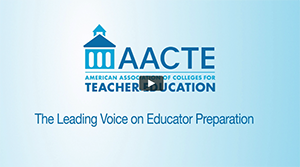 Have you noticed AACTE’s fresh look? Last year, the AACTE brand received a face lift. The corporate logo was streamlined, the organization’s key messages were refined, and new marketing materials were developed (and more are under way!).
Have you noticed AACTE’s fresh look? Last year, the AACTE brand received a face lift. The corporate logo was streamlined, the organization’s key messages were refined, and new marketing materials were developed (and more are under way!).
We are proud to bring you a new AACTE Fact Sheet and PowerPoint slidedoc, a uniquely shaped marketing brochure, and a must-see corporate marketing video.
16 Feb2016
By Melvin Bogard
 Ed Prep Matters is featuring “Stories of Impact” to showcase AACTE member institutions with educator preparation programs that are making a positive impact in their communities and beyond through innovative practices. We are committed to sharing members’ success stories and encourage you to do the same.
Ed Prep Matters is featuring “Stories of Impact” to showcase AACTE member institutions with educator preparation programs that are making a positive impact in their communities and beyond through innovative practices. We are committed to sharing members’ success stories and encourage you to do the same.
As America and its school-age population grow increasingly diverse, educator preparation programs are striving to recruit and prepare more teachers from historically underrepresented groups. Statistics show that by 2050, the United States will have no clear racial or ethnic majority, yet the educator workforce remains largely White—a mismatch decried as violating students’ educational civil rights.
12 Feb2016
By Deborah Ball and Simona Goldin
“Teaching is a high-stakes practice—there is no more powerful position to hold than that of teaching,” said University of Missouri Kansas City Professor Etta Hollins at her November 2015 TeachingWorks streaming seminar series talk. What’s more, Professor Hollins described coherence as a series of opportunities to learn teaching, “like glue” that makes the opportunities to learn teaching work.
Hollins’ statements capture the commitments that inform the 2016 TeachingWorks/AACTE “Preparing Teachers for Practice” strand of the AACTE Annual Meeting, including a warrant to work together on the problems of change, improvement, and coherence in teacher education. This year’s strand confronts critical obstacles to change in teacher education. We ask boldly: Can we as the profession of teacher education stand up and take charge of change? What—if anything—would you argue should be common in teachers’ preparation across programs? Are there things that we can agree are crucial for any beginning teacher to be committed to and be able to do? Is there a way to reach some common professional ground in ways that are sensitive to contexts and respectful of difference? Is there a way to do this that does not silence or dominate diverse perspectives? What would you argue must vary, and why? Can such difference avoid exacerbating inequality?
12 Feb2016
By Kristin McCabe
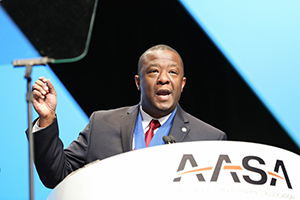 Congratulations to Thomas S. Tucker, superintendent of Princeton City Schools in Cincinnati, Ohio, who has been named 2016 AASA National Superintendent of the Year!
Congratulations to Thomas S. Tucker, superintendent of Princeton City Schools in Cincinnati, Ohio, who has been named 2016 AASA National Superintendent of the Year!
Tucker’s selection was announced February 11 at the National Conference on Education hosted by AASA, The School Superintendents Association. He was one of four finalists for the honor; others included Pamela Moran of Charlottesville, Virginia; Steven Webb of Vancouver, Washington; and Freddie Williamson of Raeford, North Carolina.
11 Feb2016
By Deborah Koolbeck
On February 9, President Obama released the final budget request of his presidency, a request for Fiscal Year 2017 (FY17). Next, Congress will respond with its own budget followed by the appropriations process—when lawmakers can choose to implement the president’s request or parts of it, or move forward on their own priorities. With the Congress under control of the Republicans during this presidential election year, the president’s request is unlikely to receive much focus.
The budget request for the U.S. Department of Education is $69.4 billion for FY17, a 2% increase over the FY16 level. The administration again proposes to eliminate the Teacher Quality Partnerships—the only federal grant program focused on strengthening and improving teacher preparation programs—replacing it with the Teacher and Principal Pathways programs. The administration also proposes to eliminate the TEACH grants in 2021 and increase loan forgiveness for teachers in high-need schools.
10 Feb2016
By Zachary VanHouten
You still have time to apply for the 2016 Holocaust Institute for Teacher Educators (HITE), a week-long, all-expenses-paid professional development opportunity in June at the U.S. Holocaust Memorial Museum in Washington, DC. The deadline for applications has been extended until March 4!
AACTE member faculty are invited to apply through our online application. For more information, read this article or contact me at zvanhouten@aacte.org.
Be sure to also stop by the HITE concurrent session at AACTE’s 68th Annual Meeting in Las Vegas! The session (Education Under the Third Reich: A Case Study for the Ethics of Teaching) is scheduled for Thursday, February 25, at 10:30 a.m. in Grand Ballroom E. Add the session to your personal schedule through our Online Event Planner.
09 Feb2016
By Kristin McCabe
The annual National edTPA Implementation Conference will be held March 31 – April 2 at the Savannah Marriott Riverfront in Savannah, GA. The program planning committee seeks session proposals by Monday, February 15, from implementers of edTPA, the PK-12 community, and others involved in supporting teachers and candidates in using the assessment.
The conference, “Building Bridges to Highly Accomplished Teaching: From Preservice to Teacher Leader,” aims to include interactive sessions to share and develop practices, perspectives, and research aligned with the following strands:
09 Feb2016
By Whitney Watkins
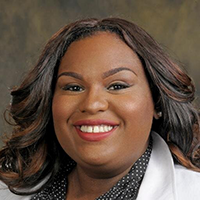 Congratulations to February Scholar of the Month Amanda Wilkerson!
Congratulations to February Scholar of the Month Amanda Wilkerson!
Wilkerson is a doctoral candidate at the University of Central Florida. Her research interests are historically Black colleges and universities, college transition programming for first-generation, low-income students, and program evaluation, curriculum development, and instrument design for Freshman Year Seminar.
“Amanda is truly a dynamic educator, scholar, and individual,” said Wilkerson’s nominator. “Her passion for social change is one of her many facets that I admire and am inspired by. You never leave the same after having an encounter with Ms. Amanda Wilkerson, and her future college presidency will surely bode well for the institution being served under her leadership. It is my honor to nominate such an outstanding woman!”
09 Feb2016
By Nadene Davidson
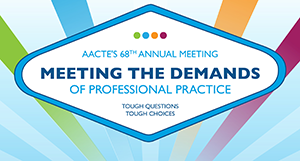 As chair-elect of AACTE’s Advisory Council of State Representatives (ACSR), I invite you to join me in an engaging, thought-provoking, and solutions-oriented panel discussion about school-staffing challenges during AACTE’s Annual Meeting in Las Vegas.
As chair-elect of AACTE’s Advisory Council of State Representatives (ACSR), I invite you to join me in an engaging, thought-provoking, and solutions-oriented panel discussion about school-staffing challenges during AACTE’s Annual Meeting in Las Vegas.
On Tuesday, February 23, at 1:45 p.m., ACSR will host the major forum “A Regional Lens to Addressing Teacher Shortage and Distribution by Subject and Location,” focusing on factors contributing to the western region’s teacher shortages and to the inequitable distribution of effective educators. (You can add the session to your personal schedule in the Online Event Planner).
05 Feb2016
By Sharon Robinson
Have you tried walking around with just one eye open? It’s tough: Your field of vision is limited; your balance suffers; you lack depth perception. Our brains need a variety of signals to bring the world into focus—and of course, this holds true not only for eyesight, but for our comprehension of just about everything.
Educator preparation is no exception. To help us meet the demands of professional practice, we form partnerships that span varying perspectives. One-dimensional views issued from the academy are as unhelpful as those emanating from the state house. But we find meaning and make progress on the tough questions when we tackle them from many angles at once, embracing complexity as an element that is essential to moving forward.
AACTE’s upcoming Annual Meeting—a convening primarily for teacher educators—will bring in these key viewpoints with significant participation from the world of practice and beyond. Beginning with preconference events and running through sessions large and small, this conference will provoke new insights on problems of practice through multidimensional views.
05 Feb2016
By Renée A. Middleton
The views expressed in this post do not necessarily reflect the views of AACTE.
Many people in the teaching profession are applauding the Every Student Succeeds Act (ESSA), which President Barack Obama signed into federal law in December. ESSA is not perfect, but what law or federal mandate is? The purpose of ESSA, in short, is to modernize and fix the No Child Left Behind Act (NCLB), which turned into a broken system that, for more than a decade, did far more harm than good.
ESSA, to be sure, addresses some of NCLB’s biggest problems. The good news is that it allows for greater flexibility and opportunities for educator preparation programs to be creative and innovative in impacting PK-12 student learning with local districts and other partners. It also requires states to adopt challenging academic content standards and entrance requirements for credit-bearing course work in the state’s system of public higher education. These changes, among others, are long overdue.
03 Feb2016
By Deborah Koolbeck
On February 2, the U.S. Department of Education released guidance to chief state school officers on how No Child Left Behind (NCLB) funds in effect through the 2016-2017 school year may be used to “eliminate redundancy and ensure efficacy and quality of assessment.” You might recall that the Department released a Testing Action Plan in October 2015 to reduce the overtesting of our nation’s youth.
The guidance elaborates on what the Department views as principles for good assessments. The principles state that every assessment should be
- Worth taking
- High quality
- Time limited
- Fair, and supportive of fairness, in equity in educational opportunity
- Fully transparent to students and parents
- Just one of multiple measures
- Tied to improved learning
02 Feb2016
By Melvin Bogard and Kristin McCabe
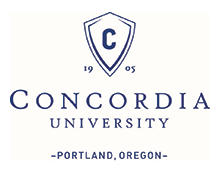 Ed Prep Matters is featuring “Stories of Impact” to showcase AACTE member institutions with educator preparation programs that are making a positive impact in their communities and beyond through innovative practices. We are committed to sharing members’ success stories and encourage you to do the same.
Ed Prep Matters is featuring “Stories of Impact” to showcase AACTE member institutions with educator preparation programs that are making a positive impact in their communities and beyond through innovative practices. We are committed to sharing members’ success stories and encourage you to do the same.
In one of the most impoverished neighborhoods of Portland, Oregon, a flourishing partnership between Concordia University and the PK-8 Faubion School has spawned ambitious plans for a new model of education to help disenfranchised students and the whole community.
02 Feb2016
By Kristin McCabe
Two new studies commissioned by the National Center on Education and the Economy (NCEE) credit the collaborative professional learning of teachers in British Columbia, Hong Kong, Shanghai, and Singapore with their students’ strong performance on international assessments. NCEE’s Center on International Education Benchmarking organized a half-day forum last month featuring panel discussions of these countries’ policies that support such systems—and what lessons the United States should draw from them.
Rather than treating professional development as an add-on program such as monthly workshops, the studies say, successful education systems embed it broadly. Teacher-led collaborative learning is deliberately planned into structures such as well-defined career ladders, mentorship programs, and schools’ daily schedules. Although some of these features can be found in U.S. districts, none is widely used or as robust as described in the reports, and panelists advocated for a stronger systems approach.
02 Feb2016
By Aaron Goldstein
 Over the past month, 35 state legislatures have convened for their 2016 legislative session—and it’s already been a productive year. Since January 1, nearly as many state bills related to educator preparation have been introduced as in all of 2015. In 2015, about 150 such bills were introduced; during January 2016, there were 133, introduced in 33 state legislatures. The states with the most bills proposed so far are New Jersey, Oklahoma, Iowa, Florida, and Michigan. Some of the common topics addressed in the bills include modifying teacher certification/licensure standards as related to teacher shortages and alternative routes to certification, investing in scholarships and loan forgiveness for teachers, and mandating training for teachers to support students with dyslexia as a requirement for licensure.
Over the past month, 35 state legislatures have convened for their 2016 legislative session—and it’s already been a productive year. Since January 1, nearly as many state bills related to educator preparation have been introduced as in all of 2015. In 2015, about 150 such bills were introduced; during January 2016, there were 133, introduced in 33 state legislatures. The states with the most bills proposed so far are New Jersey, Oklahoma, Iowa, Florida, and Michigan. Some of the common topics addressed in the bills include modifying teacher certification/licensure standards as related to teacher shortages and alternative routes to certification, investing in scholarships and loan forgiveness for teachers, and mandating training for teachers to support students with dyslexia as a requirement for licensure.
In addition, since the New Year, 34 state regulations have been proposed in 17 states related to educator preparation. The vast majority of the proposed state regulations relate to streamlining or clarifying teacher certification standards.
 Have you noticed AACTE’s fresh look? Last year, the AACTE brand received a face lift. The corporate logo was streamlined, the organization’s key messages were refined, and new marketing materials were developed (and more are under way!).
Have you noticed AACTE’s fresh look? Last year, the AACTE brand received a face lift. The corporate logo was streamlined, the organization’s key messages were refined, and new marketing materials were developed (and more are under way!). 






 Ed Prep Matters is featuring “Stories of Impact” to showcase AACTE member institutions with educator preparation programs that are making a positive impact in their communities and beyond through innovative practices. We are committed to sharing members’ success stories and encourage you to do the same.
Ed Prep Matters is featuring “Stories of Impact” to showcase AACTE member institutions with educator preparation programs that are making a positive impact in their communities and beyond through innovative practices. We are committed to sharing members’ success stories and encourage you to do the same. Congratulations to Thomas S. Tucker, superintendent of Princeton City Schools in Cincinnati, Ohio, who has been named 2016 AASA National Superintendent of the Year!
Congratulations to Thomas S. Tucker, superintendent of Princeton City Schools in Cincinnati, Ohio, who has been named 2016 AASA National Superintendent of the Year! Congratulations to February Scholar of the Month Amanda Wilkerson!
Congratulations to February Scholar of the Month Amanda Wilkerson!  As chair-elect of AACTE’s Advisory Council of State Representatives (ACSR), I invite you to join me in an engaging, thought-provoking, and solutions-oriented panel discussion about school-staffing challenges during AACTE’s Annual Meeting in Las Vegas.
As chair-elect of AACTE’s Advisory Council of State Representatives (ACSR), I invite you to join me in an engaging, thought-provoking, and solutions-oriented panel discussion about school-staffing challenges during AACTE’s Annual Meeting in Las Vegas. Ed Prep Matters is featuring “Stories of Impact” to showcase AACTE member institutions with educator preparation programs that are making a positive impact in their communities and beyond through innovative practices. We are committed to sharing members’ success stories and encourage you to do the same.
Ed Prep Matters is featuring “Stories of Impact” to showcase AACTE member institutions with educator preparation programs that are making a positive impact in their communities and beyond through innovative practices. We are committed to sharing members’ success stories and encourage you to do the same.